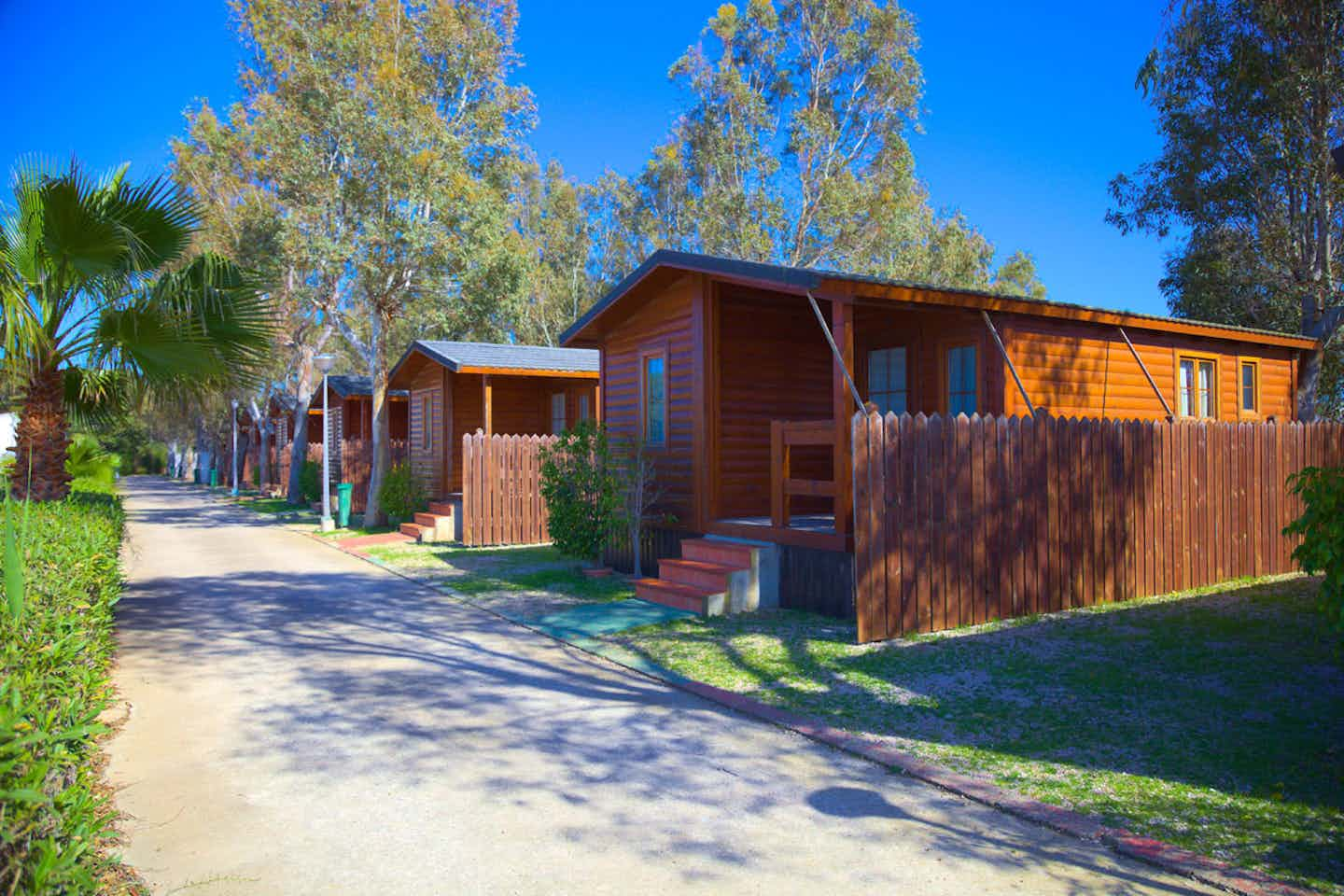Devesa Gardens by Samay
Spain / Valencian Community / Valencia
(8Ratings)
Camping in Valencia promises a perfect combination of beach holiday and city experience. Different types of campsites are ideal for culture and nature lovers. Thanks to its favourable location, Valencia's historical sights are easily accessible by bike, which is particularly appealing to campers. In the surrounding area, wide sandy beaches are ideal for water sports and offer ideal conditions for various beach activities. Relaxation and recreation can be found in the idyllic natural surroundings on the Mediterranean, while the vibrant city of Valencia offers cultural discoveries.
14,400+ campsites
all around Europe196,700+ reviews
from real campers15 million users
on the PiNCAMP sites5.800+ campsites
with trusted ADAC classification
Number of campsites
4
Campsite reviews
16
Ø-ratings
4.8
Families camping with children like to spend the day on the clean, sandy stretches of coastline around Valencia. Here they can relax and splash around. If you're a fan of a seamless tan, you can book onto one of the naturist camping pitches. After sunbathing, head to the vibrant city on the Río del Turia for refreshments or a stroll.
The campsites in Valencia are mostly located close to the city centre. Holidaymakers who enjoy culture, art and entertainment feel particularly at home here. The beauty of Valencia is that the city is located by the sea and is therefore ideal for a combination of beach and cultural holidays. There are small, simple campsites in the region as well as facilities with extensive facilities such as pools and wellness centres.
The fact that the Spanish metropolis can be easily discovered by bike makes it perfect for a holiday with a motorhome. The beautiful beaches invite you to enjoy water sports and relax, and some of the facilities are also textile-free.
Travelling to Valencia by caravan, motorhome or your own car means touring through some of the most beautiful regions in Europe. The distances are around 1610 km from Stuttgart, 1720 km from Munich, 1710 km from Cologne, 2170 km from Hamburg and 2220 km from Berlin.
The shortest route from Stuttgart is via Mulhouse, Lyon, Orange, Nimes, Montpellier, Narbonne, Girona and Barcelona. As a rule, most holidaymakers from Germany choose the same route from Montpellier for the last stretch to Spain. Holidaymakers from Munich often travel to Montpellier via Zurich, Bern, Geneva and Valence. Holidaymakers from Hamburg often travel via Cologne, Luxembourg, Nancy, Dijon to Lyon and from there on to Valencia.
An overnight stopover is not only worthwhile because of the long distances, but also because of the charming landscapes and towns along the way. Depending on how far holidaymakers want to drive in one day, the areas around Lyon or Dijon in France are ideal for an extended break. There are many campsites near the motorways that can be used for a safe and pleasant overnight stay.
Valencia has a colourful variety of activities to offer. From various sports to excursions to historical highlights, the region around Valencia offers a wide range of activities.
The Mediterranean near Valencia is the ideal setting for sporty holidaymakers. Campers can hire sailing or motor boats from various providers and discover the coast. There are also offers such as windsurfing and kitesurfing, water and jet skiing as well as diving. The rivers and lakes in the hinterland are not only popular with hikers, they are also a favourite destination for anglers.
The city of Valencia is very cyclist-friendly. If you want to explore the sights, the ideal way to do so is on a bike. There are hardly any inclines, so even children and beginners can easily keep up. A beautiful tour leads along the riverbed of the Turia with the neighbouring 7 km long and around 100 hectare park, which is also ideal for a picnic. Holidaymakers can pick up the ingredients for a picnic at the central market in the city centre, for example.
The national dish of Valencia is paella. The rice dish is made with either chicken, rabbit, pork or lamb, but there are also delicious fish and seafood variations. The yellow colour is typical, which the dish owes to the valuable ingredient saffron. Pasta fans favour fideuà, a variation of paella made with small durum wheat noodles instead of the typical rice.
A delicious thirst quencher from the region is horchata de chufa, a milk made from tigernuts, water and sugar, which is served ice cold. The barley malt drink Agua de Cebada is often served with it, but it can also be ordered separately. Agua de Valencia is a sparkling drink made from orange juice and Spanish sparkling wine.
When camping in Valencia, visitors can expect moderate and pleasant weather all year round. Temperatures fluctuate on average between 11.5 degrees Celsius in January and around 25.5 degrees Celsius in August. The sun usually shines and the sky is rarely overcast. In the summer months, you can even expect up to eleven hours of sunshine a day.
The ideal time for a beach holiday is from June to mid-September. This is when the thermometer sometimes rises to over 30 degrees and the water is a pleasant 25 degrees. It rarely rains in the region, but there can be strong winds in autumn, so you should take extra precautions with your equipment at the campsites in Valencia.
How may campsites are there?
You can find 4 campsites on PiNCAMP.
What are the top 3 Campsites?
The most popular campsites are Camping Valencia el Saler, Camping Coll Vert, La Tomatina Camping and Dorms.
What are the top 3 characteristics of campsites?
Which regions are popular with campers?